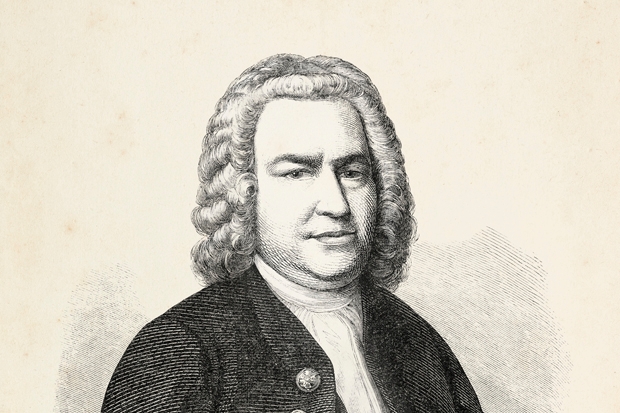The churning, rheumatic mechanism of a harpsichord — notes needling your ears like drops of acid rain — doesn’t necessarily play well to an audience whose sensibilities have been moulded around the picture-perfect delicacies of the classical piano. J.S. Bach’s freakishly popular Goldberg Variations remains best known through the recording made by the oddball Canadian pianist Glenn Gould in 1955, a record that would bleed unexpectedly into mainstream consciousness. For a whole generation, the sound of the Goldbergs became interchangeable with Gould’s quicksilver fingers — and a collective amnesia grew around the fact that Bach had actually conceived his most famous keyboard work for the harpsichord.
Six decades on, a pair of brand-new recordings — by the veteran pianist Angela Hewitt on Hyperion and by the thirty-something harpsichordist Mahan Esfahani on Deutsche Grammophon — finds that the common language of the Goldbergs is still being divided by the instrumental hardware on which the work is performed. Juggernaut modern grand pianos, tailor-made for the brawn of late-period Beethoven sonatas, can too easily leave the intricate mesh of Bach’s lines overwhelmed. True enough, the robust architecture of note against note, and line moving against line, means that the music always remains sturdily bulletproof over the long haul — even if you played the Goldbergs on kazoo its essence would remain. But while popular opinion suggests that there is nothing wrong with playing Bach on the piano, everything feels right about playing his music on the harpsichord.
Even Gould recognised the limits of Bach on the piano. When he recorded the Well-Tempered Clavier, he complained that Bach’s interweaving lines lacked clarity in the muddy mid-range of his piano — ‘the area of the instrument in which a truly independent voice leading is most difficult to establish,’ he said. Voice leading — the art of morphing one chord into the next, hopefully without any audible gear change — is a litmus test of any secure Bach technique and Gould found the piano wanting.
The resonant boom of Hewitt’s piano can invoke the heat of romanticism — and no bad thing some might say. But one compromise will always be a compromise too far. On piano Bach can never, by definition, be tuned as he intended. Modern pianos tune to equal temperament, a system of tuning that gradually took hold during the 19th century — 100 years after Bach’s death. The aim was to standardise tuning by dividing the unruly physics of the octave into 12 crudely defined base primary colours, rather as fonts rationalise the idiosyncrasies of handwriting. But Baroque composers actively exploited the expressive light and shade of their unequal, non-standardised tuning systems. A composer’s tuning could often be their calling card, never to be messed with lightly.
The booklet notes to Mahan Esfahani’s new recording proudly display a diagram showing the minutiae of his harpsichord tuning — Hewitt once got jolly cross when I raised the question of tuning during an interview. Had Gould opted to record the Goldbergs on harpsichord his difficulties with cluttered voice leadings might well have melted away. Homogenised piano tuning channels melodic lines into a seamless blend. On harpsichord, though, nuances of tuning lend lines different weights and emphases. Some lines become more equal than others — and the music assembles itself in three-dimensional glory.
But how authentic is this back-to-basics Bach with original tunings on original instruments? The American musicologist Richard Taruskin, author of A History of Western Music, thinks we need to be careful and has argued that such clean-cut, cerebral Bach is actually an off-shoot of modernism that appeals to those who seek comparable white-canvas qualities in the piano music of Anton Webern or Pierre Boulez. But performing Bach on the piano — refracted through the classical sensibility of Beethoven or Schubert — is as historically gerrymandered as colourised Laurel & Hardy films.
Genuine Bachian fakes — the flexed orchestral muscle of Leopold Stokowski’s arrangement of the Toccata and Fugue in D minor or Walter Carlos wiring Air on a G String through the circuitry of a Moog synthesiser on his 1968 LP Switched-On Bach — are examples of the composer securing a place in the modern world. But the sound of the harpsichord is our portal back to Bach’s actual lived-in world, a Baroque master operating in relative obscurity in Leipzig — armed only with manuscript paper and his harpsichord.






Comments